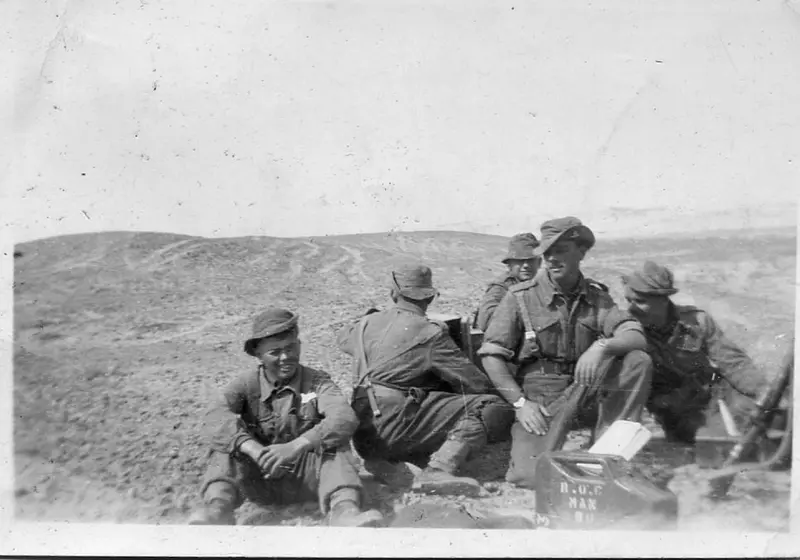Janet Skeslien Charles published "The Paris Library" in early 2021. The historical fiction novel details a true story of librarians collaborating to resist the Nazis' merciless rafale on Jewish people and follows an ambitious young Parisienne named Odile. Her story ends abruptly with the end of the war, and she moves to a remote town in Montana, where she escapes from the events of the past. However, many years later, when quick-witted teenager Lily enters her life, Odile is forced to revisit her time in Paris.

Courtesy of Janet Skeslien Charles
Her upcoming release, "Miss Morgan's Book Brigade," is about Jessie Carson and her impact on World War 1 through establishing children's libraries in France. But Jessie suddenly vanishes, and decades later, an American librarian - Wendy Peterson - becomes obsessed with her work. Soon, their paths converge. The Teen Magazine exclusively interviewed Skeslien Charles about "Miss Morgan's Book Brigade" and "The Paris Library."
Please note, this conversation was condensed and edited for clarity.
What was your inspiration for including Lily in "The Paris Library?"
Well - I'm from a small town (population 200), and I wanted to show that you don't have to be from an exotic place to have an interesting and important inner life. And so I started writing the book - Lily's section first, all of it. Then, I wrote Odile's perspective, and people thought Paris was more interesting than rural Montana. But, when I wrote the book, it was about Lily looking at this foreigner in her hometown who had never integrated into the culture.
Yeah, and it's like Lily and Odile have their development in different ways. How'd you contrast that?
For me - they're the same people. But different continents, places, and times. Essentially, they have the same weaknesses, feelings, and strengths - I wanted them to have those parallels, and I feel like I've always been in education and teaching.
I've almost always been in school my whole life. And so when you're working with young people, you feel very motivated about the future because you see that you're in good hands. I wanted to show that you can learn from young people.
What was your inspiration for Miss Morgan's Book Brigade?
I was researching the Paris Library in the American Association Archive Libraries. I wanted everything, so I paid someone there to scan the pages - like an information dump. I love going through old documents and seeing what's there.
So, I came across a New York children's librarian named Jessie Carson, and she became part of the CARD - the women called themselves CARDS. And it was this resistance group. Jessie Carson was a CARD, and I really wanted to write about her because she changed the literary landscape of France. Libraries weren't really hospitable at the time - and it was mainly men who went to school. There were no women archivists, so Jessie feminized the field and opened it up to everyone. Libraries were manned by bureaucrats - who weren't interested in the actual literature.
What you're doing is telling the untold stories of World War 2, especially the feminine side - women in war.
Right, because Jessie Carson doesn't have children, and they were really dedicated to their jobs. But, the people behind the scenes don't get the glory or are recognized. I really wanted to talk about these two amazing librarians, especially Carson's impact on France's libraries.

Courtesy of Janet Skeslien Charles
That's so true, and one quote that really stuck out in The Paris Library was "Books are like blood, and libraries are like lungs." So, why do you think books are important to teenagers?
I was born in a small town, and I couldn't know what an editor does. For me, the jobs I had in rural Montana were accountants, teachers, farmers, and other basic jobs. All the jobs in NYC weren't accessible to me.
When you're reading, without leaving your house, you can read about these incredible opportunities and places. You can step into someone else's shoes, and that's the amazing thing about reading.
Exactly - and unfortunately, book bans are drastically changing that. The situation is almost like the Nazis in "The Paris Library!"
Agreed, and if you look at the American Library Association, they keep track of all the book ban complaints. When I grew up, the books that got complaints had [censored] in them - like Judy Blume's "Forever." The books that are banned - you can see what society is scared of. And now, it's about racial and sexuality topics - the things people are afraid to talk about. So, instead of having conversations, they just tell their kids "no."
All these people at the school board meetings just want to ban books. Is there a similar problem in France?
In France, there's not much of an issue with book banning. It's become popular in the States. It's like people want to take control and stop progress from happening - but of course, they're not going to stop anything.
I just don't understand it. I think they're like the Nazis - they're removing books. One way they do this is they just steal them out of the library. Or they threaten librarians, and that causes them to quit - all the online and physical confrontations and hate. In a way, using that violence against librarians and books is alarming and extremist.

Courtesy of Janet Skeslien Charles
It's interesting how the theme of (book) is children's libraries. I want to talk about the cover - what do you think it represents?
For the Paris Library - I was inspired by the Guernsey (name)'s cover, arranged as an exchange of letters. When Atria asked me what cover I was inspired by - I told them that. For the new book, I just wanted readers to connect the color schemes, fonts, and I want them to know that books are like companions.
Another thing that's similar is the dual perspective, so, what is the biggest challenge for you when you're developing this structure?
So, what was challenging with The Paris Library is that I wrote Lily's section first, and I had to find the parallels between the two protagonists' structures. For instance, Lily dealt with the Cold War, and Odile dealt with the Phony War, both wars on pins and needles. I wanted that feeling to pervade both eras of the book.
For the new book, I found World War 1 to be very destructive. I spent many years reading about the destruction of war, and I found this area of Northern France - the Red Zone, and it's unsalvageable land that they've given up on. Mankind has destroyed the world to that extent, and a lot of people who didn't have anything to do with the war found themselves trapped. I really wanted something to balance the darkness. My character Wendy was like a balancer, with her comic relief and levity. She's a detective, and she's trying to find out what happened to Jessie Carson.
Let's imagine you're in a library with Jessie Carson and Odile. What would you tell them?
That's such a good question. I would thank them for spending time with me. I started writing The Paris Library in 2010, sold it in 2019, and promoted the book, spanning a decade. I hope they enjoyed spending time with me as well.
The Paris Library - that took you a decade to write, and after so much work, did you ever find yourself stopping?
I think when you're writing a book, you have to choose something that you're passionate about - because it always takes longer than you think it will. You have to find a topic you're passionate about. I was still interested in what happened to the librarians after I turned in the book.
I tracked down some of them and wrote about a Chicagoan librarian in the Chicago Tribune. I interviewed some of the characters' families, and it was such an interesting topic - especially with the Crow Letters.
The comedy, the tragedy, and the true aspect of The Paris Library - I think that made it a bestseller. Can you walk me through the day you found out your book is a NY Times Bestseller?
Everyone has different goals for themselves. And my goal was to have lunch in New York with my editor. My second goal was to do a book signing and have a glass of champagne while doing it.
There's something called Winter Institute - Independent booksellers - once a year, they have a big conference, and before Covid, I was invited to do a book signing with them. So - I met my goal. I think when you're setting goals for yourself, it's important to set attainable goals. When I was sending out query letters, I wanted to send out 5 query letters this week rather than wanting to get an agent to sign them. I had control over my goals. When I found out the book became a bestseller, my editor called me at 11 at night. But I really just wanted that communion with my reader. I have a writing colleague, and his goal is to have an NY Times review for each book. But if he doesn't, the book is a failure. What if there's a lot of news? Or other timely books? There are things you can't control, so I think it's better to think of what you can control.
My final question is, what do you want as teenagers to learn from The Paris Library and Miss Morgan's Book Brigade?
I want teenagers to enjoy reading the books. And maybe discuss them with friends, arguing about their point of view. When you read with someone, it broadens your mind.
People always have a different way of reading themselves. I'm 50% of the book, but the readers are the other half. I hope that the books inspire the next generation of writers and storytellers.
"Miss Morgan's Book Brigade" is coming out on April 30, 2024.




